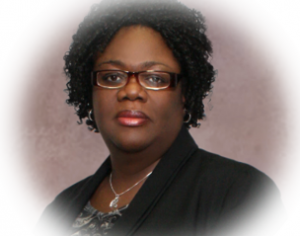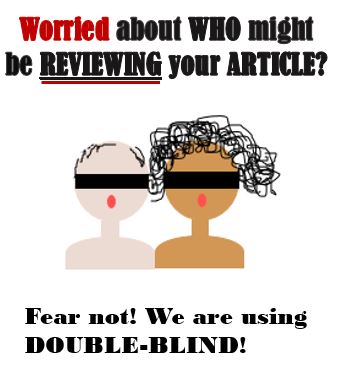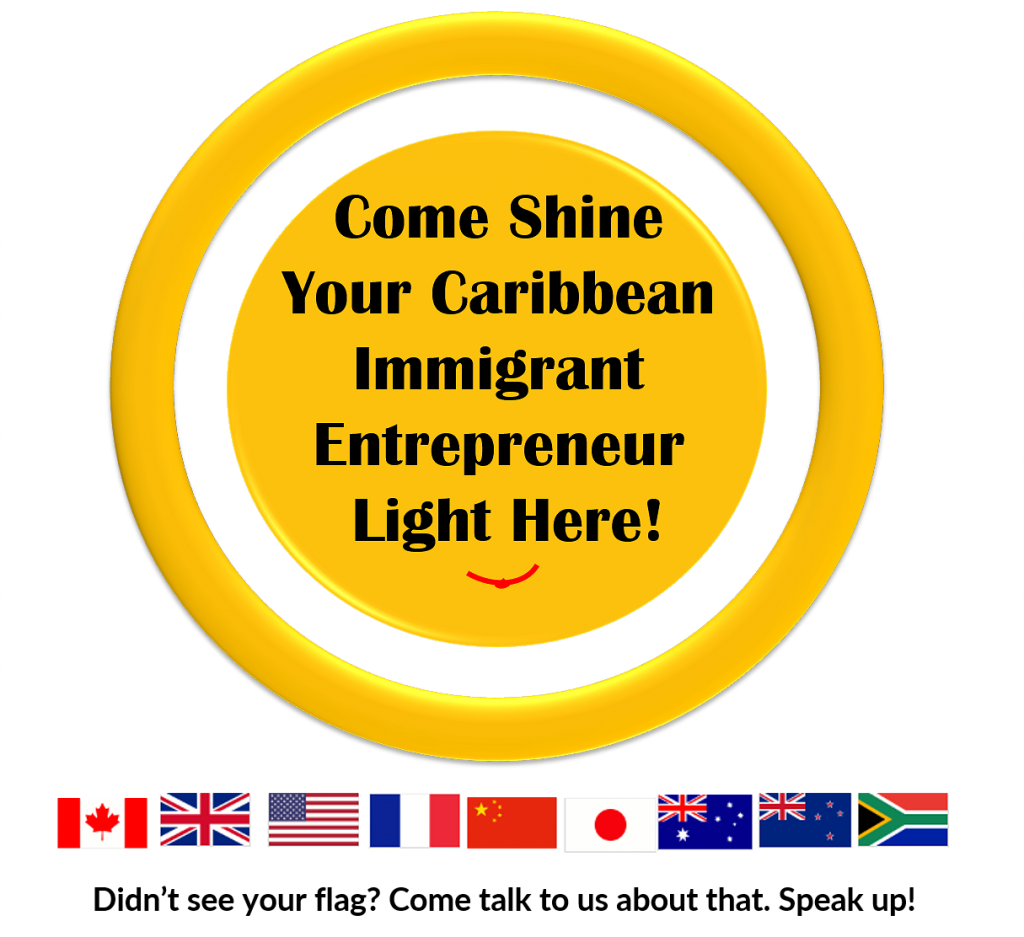The Noësis: Double-Blind Peer Review Guidelines
We’ll be using a double-blind review process for articles submitted to The Noësis.
This means the author will not know who reviews his or her work and the reviewer will not know the identity of the author of the piece he or she is assigned to review.
As an author or contributor, we ask that you prepare your submissions in a manner that conceals your identity. Here’s how, submit your name and the title of your piece in a separate file. You should repeat the title on the file that contains the work intended for publication. Submit both files with one Email and two attachments.
- If you refer to yourself please use [Anonymous].
- To cite previous works, you must blind that reference in your reference list. For blinding in the reference list, please use the phrase: ‘[Anonymous 2018] Details have been omitted for double-blind reviewing.’.
- Besides self-references please include details of other references
- For figures and illustrations that you have created or adapted please use “[Anonymous] Details have been omitted for the double-blind reviewing.
- Ensure any author identification such as name, institution, phone number or email address are not contained in the document with the work for review.
- All submissions must be made in an MS Word document.
Should your submission be accepted you will be provided with the necessary feedback and comments for updating your article or submission. During that process you will replace [Anonymous] or ‘[Anonymous 2018] Details have been omitted for double-blind reviewing.’ with references to you or your affiliate as appropriate.
For questions and comments please click the contact us link.
Warm and Up-Close Remote Strategic Planning
“Remote strategic planning? Hmmm… I’ve got to say I am doubtful about that one. Strategic planning is too expensive, time consuming and important for me to risk on getting it done virtually”.
If that’s how you feel about remote strategic planning we couldn’t fault you for sharing that sentiment. Strategic planning is serious business and you would be foolhardy to take such an important risk with little information on how remote have worked for planning, or the advantages and drawbacks to it.
Moreover, when you are embarking on the strategic planning journey, both you and your team need a warm interaction with an expert who will do more than facilitate planning. You are likely looking for an expert in strategy as well as a facilitator who serves as an objective advisor. One who ask heads-back and chests-forward incisive questions for helping your team to rethink strategy, goals, objectives and actions. And by doing so ensures what your plan is doable, positions your organization for growth and account for risk. You also want someone to lead your team into reflecting on its history and results to date.
Today, 99% of strategy solution sponsors expect their investment to include an external sounding board, researcher, coach and mentor for helping their team to grow planning skills, experience and knowledge. With such a long wish list hinged on relationships, expertise, experience and time management it is easy to see why to someone unfamiliar with remote strategy planning would perceive it to be too cold and distant to deliver their expectations.
But as William Yeats (The Irish Poet, W.B. Yeats) says— “The world is full of magic things, patiently waiting for our senses to grow sharper.” Remote strategy planning is one such magic thing waiting to help you grow a stronger organization.
Though odd, this open secret—fear of the unknown and failure is still a hidden factor that have dogged and crippled the leadership of many organizations when it comes to pursuing growth-focused innovation and strategy execution. Making strategy planning happen when teams are scattered or budget is tight is not excluded from that scenario.
I’d say it’s a sad state of affairs that can be easily fixed. Do not allow fear to limit the impact of your leadership or options for developing and executing your strategy. Explore the exciting opportunities presented by low cost technology for remote planning and other strategic management activities.
Technology have come a long way in providing the virtual platforms that allows individuals and organizations to deliver face-to-face, warm remote interactions. Not to mention, the variety of software and applications that allows for democratic and group processes, stakeholder consultations, interviewing, surveys, data capture from social media and mobile engagement.
All of which provides for deeper learning, expanding knowledge and improving the quality of data on which to make predictions for developing your strategy, plan and related logic.
By now I believe you can see at least a glimmer of how strategic planning could work in a remote environment?
Our ability to gather information on context, clients, customers, suppliers, industry—you name it in addition to internal information for guiding decisions relating to the what and how for advancing your mission and delivering your vision have been enhanced exponentially by remote research capabilities.
On top of that opportunities for your team members to revisit planning sessions individually in their own time for increasing understanding and reflection are tremendous.
Cost is another big factor that have led some organizations to take the “do it yourself”, less objective and less effective though better-than-nothing approach. Others have sadly chosen to skip planning on a flawed assumption that they cannot afford it. International development agencies and large charities have come to see the benefits and cost savings that are available through both remote strategy planning and organizational performance evaluation.
They have come to see the benefits of leveraging technology to connect remote communities and entities with limited resources to top-notch talent. Talent has come to realize the cost savings and value-added they can deliver through extended capacity to reach customers and stakeholders in faraway places in addition to those nearby. Big business and organizations in large cities are increasingly turning to the use of remote planning solutions in order to save while including participation by team members in other towns, countries or cities.
You’ll find that UN organizations (United Nations) are among the large NGOs and intergovernmental organizations that are seizing such opportunities. So, what’s holding you back?
If you lack experience that’s not a problem, you must start somewhere. If you fear it might not be right for you then, you have two options research to find out more then decide, try and see or both.
We understand that remote planning might not be right for every team, so we are willing to help you decide if it is right for yours.
We bring almost two decades of strategy and remote service delivery experience to helping you to decide.
What Goes into The Remote Planning Exercise
When planning with us the steps we’ll take will vary depending on the following: the experience of your team with strategic planning, remote planning, the stage of development of your organization, motivation to and purpose for planning as well as where you are on the strategy process continuum.
As it relates to the strategy process continuum it could be that you are in need of your first corporate strategy plan; or you are at a milestone and need a new strategic operational plan? It is also likely that you have come to the end of the implementation period for a program or a 3-5yr corporate strategy plan and is now in need of a strategy solution for developing the new plan.
In that case you may need an organizational self-assessment for assessing how you did in the past, strategy development, evaluation and planning for creating the new corporate strategy plan that will guide your next strategy execution period. Most organizations, experienced in planning would also invest in the combo of corporate strategy plan, operational plan and performance management tools (For guiding monitoring and evaluation during strategy execution).
Your Solution Unwrapped
Note: The following is not a step-wise process as the steps will depend on where you are on the strategy process continuum.
Depending on what’s right for you we put technology to work with human care and intelligence to take you through processes such as:
- Eyeball-to-eyeball virtual meetings, conversations and document reviews for understanding your context, wants and needs;
- Strategic identity creation, clarification or update (For ensuring mission, vision, values etc. are clear, relevant, inspiring and impactful);
- Identification of your core resources, competence, aspirations, challenges and capabilities;
- Strategic analysis, drawing on qualitative and quantitative research methods and tools for better understanding your external environment. At the end of which we will better understand how it will or could impact your organization in addition, to how your organization might influence the environment.
We do that by conducting an external environmental scan (PESTLE, STEEP, STEEPLE, SKEPTIC etc.). Having identified trends related to regulation, inflation, ecology, customers, competitors, stakeholders, suppliers among other things we revisit your strategic intent and organizational capacity (Your SWOT plus analysis) to determine the new competencies that will be required in order to get the job done. Technology comes in handy for helping us to engage in rich conversations with your customers, clients and partners live, or to through anonymous sharing— irrespective of distance.
- Getting to an organizational development plan for you, here again we draw on the technology to present you with a user-friendly document plus face-to-face conversation that enables your leadership and management team to respond to our findings, recommendations and proposed strategy options for delivering your desired competitive edge. This forms part of your planned strategy formulation process.
- During planning, remote technology enables us to create interactive tools for illustrating and sharing your strategy framework and strategy— articulated into your position, and objectives. From Board to staff will be able to tell what kind of strategy framework you have chosen (Ansoff Matrix, Stakeholder Model, Values Discipline, McKinsey’s Strategic Horizons, Balanced Scorecard or your own blend). Strategy and logic maps can be adjusted in real-time as your team think and re-think your objectives. Best of all they can be made available in a virtual room 24/7s for comments and ideas as they flow to and from your team.
- Planning remote allows you even more time for bringing leadership and execution teams to a meeting-of-minds as they review scenarios, assess risks and assumptions and decide on trade-offs during the strategy evaluation and strategy elaboration You won’t miss out on live group brainstorm sessions, team building games or pictures of your team working together.
You’ll have plenty of opportunity to share what is working for your team during the planning process and to work out adjustments if necessary.
You may have noticed that we have covered several steps and activities before touching on strategy elaboration—the step or sub-process where the strategy gets translated into plans and workplans (Your plans will include strategic objectives, goals, indicators, quality measures, outcomes and outputs aligned with strategic intent, effort, timelines and resources).
Once the plan has been completed we will help you with the initial stage of communicating your plan. However, if we are engaged to assist with performance management and measurement we support you with full plan communication, additional help with identifying your emergent strategies, analyzing your performance results and triggering strategy update.
Challenges of Remote Planning
In exchange for deeper learning and broader participation your team will need to prep ahead for remote planning. This means using online time converters and e-calendars (outlook, yahoo and or google calendar) for scheduling.
In some instances, you and/or your team may be required to learn new skills for working in virtual planning rooms, accessing web conferences, participating in e-groups or completing online surveys. Most teams we have met have enjoyed learning those skills. Older Board members might be averse to using some e-tool, depending on their experience with technology. Nonetheless we have been able to include technology challenged individuals in remote planning sessions.
The planning process may be stretched over a longer period of time. Some groups can manage a typical 4-hour virtual planning workshop (Plus lunch and refreshment breaks) while some can only manage two hours.
You may need to check on computers, microphones and plan seating arrangement for you team ahead of the session depending on the set up we agree. It is possible to have a session without you having to consider seating or computers. But we will guide you in setting up your room as the facilitator would have if required.
Love your flipcharts? We will tell you how to make that happen during remote planning.
Expect a session or two where technology might fail and a reschedule maybe required.
Discipline for completing related assignments is required.
You may need to plan and secure refreshment and meals for your team.
Could It Be Worth Your Investment?
We believe that the challenges above are small compared to the benefits of having a plan that includes:
- a clearly articulated strategic intent,
- is easy to use for guiding the delivery of the results you planned,
- makes performance management easy,
- is doable, affordable and communicates the what and how of your strategy effectively both internally and externally.
When a solution is designed to fit your needs and budget and still allows you to access the expertise and help of a strategy expert, facilitator, strategy analyst, strategy finder, sounding board and performance improvement catalyst, we believe it’s worth the while.
Still on the fence?
Schedule a remote face-to-face connect and clarify session today!
C lick the “let’s talk button” to submit your needs, name of organization, location and three possible meeting times.
lick the “let’s talk button” to submit your needs, name of organization, location and three possible meeting times.
Meegan Scott is a strategic management consultant with almost two decades of experience in strategy and remote (virtual) service delivery.
Copyright © 2018 Meegan Scott
All Rights Reserved
Remote Planning, Monitoring, Evaluation & Coaching
Need remote organizational strengthening solutions?
- Remote Strategy Planning
- Remote Corporate Strategy Planning
- Remote Strategy Communications
- Remote Strategic Facilitation
- Remote Strategic Market and Marketing Research
- Remote Environmental Scans
- Remote Project or Program (Programme) Evaluation
- Remote Organizational Assessment
- Remote Team Prep for Strategic Planning
- Remote Program Monitoring
- Remote Program Director
- Remote Coaching for Strategy Execution and Change Management
Playing the role of CEO’s helper comes easy for us!
Take a mini tour of the possibilities— click this link to see how we can keep your back covered.
Ask for your own possibilities—and have your wishes come true.
Get in touch today!
Message us, include your needs and 3 best times to meet during the course of this week.
Click contact us to leave your service request.
Thank you for having stopped by and for the invitation to discuss your needs.
Available in Canada and internationally!
Meegan Scott for Magate Wildhorse Ltd.
Business People Can Set Social Change in Motion
Today, I read an interesting article by Richard Straub of the Drucker Society and formally of IBM.
“What does it take to cause something big about a community to change — something that no one individually has much power over, even something as big as a prevailing mindset? We know what it takes: a social movement. And social movements aren’t only the domain of community organizers and college students. Business people can set them in motion, too, as we are seeing right now”.
What Straub said was not new thinking to me, it is a belief that comes as naturally as breathing.
I have seen others with the same belief within and external to the Caribbean Community at home and abroad and I admire them for it.
However, during the past weeks while sharing information related to the Community of Practice for Caribbean Immigrant Entrepreneurs in the OECD and other diaspora markets I was asked questions which made it clear that many in our community still believe that such initiatives are the purview of Government, NGOs or donor agencies. I also experienced this very sentiment while serving another initiative for change in our community.
It is high time that we realize that business people do have a role in setting such change in motion.
Big business in the community also have a role to play in benefitting from while supporting the growth of smaller businesses. Smaller businesses have a role to play in providing cost effective and relevant solutions that will help bigger businesses with their overall objectives for growth and disruption.
A true entrepreneur recognizes the role of business in providing solutions; and that not all should not be for profit. A business is an individual and like human citizens has a civic role to play in society. We take that role very seriously at Magate Wildhorse Ltd.
I remember years ago serving as marketing manager for an industrial equipment sales and manufacturing entity that suffered regular break-ins at its warehouse located at the border of an inner-city community.
When I suggested to the owner and CEO that we establish a Corporate Social Responsibility programme and engage in dialogue with the community as well as help their students he did not hesitate. Needless to say, the break-ins ceased— at least for as long as I was there.
I don’t take all the credit for that kind of think for myself; I also thank the Government of Japan and the World Bank for my first scholarship course in Corporate Social Responsibility that served to plant that seed. I very well had it when it came to volunteering, government, NGOs and donor agencies, but I certainly learnt and have rallied teams to have it entrenched in every entity that I served since 2003.
The Black and Caribbean community must waste no opportunity to seize and run with our freedom and independence as a community— that means coming together to lead the change we want to see. That means we must engage in strong, persistent actions and create more symbols of the practice of freedom, independence and power of a people and community to chart its destiny. And in addition to charting its destiny position itself to be a high demand demographic or group within society. I do not propose alienation from other groups in society, I am speaking about moving to fix our big problems in society and positioning for a different future.
I also take this opportunity to challenge all our Alumni Associations to ensure playing a role in advancing the economic outcomes of our graduates is a primary objective your organization. The school ran one leg of the relay, the student and parents did one and our Alumni Associations must wake up and understand this fundamental role of our Alumni and Past Students Associations.
Our community and businesses must wake up, expect and accept the role of businesses and business people to set change in motion.
Meegan Scott Magate Wildhorse Ltd
Copyright © 2018 Meegan Scott
All Rights Reserved
Shine Your Light Here Entrepreneur!
Why join and shine? Click ‘why join and shine?”.
Join and shine! Click the image above.
To find out more or to report your missing flag click “tell me more” below.
Who’s At The Helm? I Want Impact!
 At the helm of Magate Wildhorse Ltd is Meegan Scott.
At the helm of Magate Wildhorse Ltd is Meegan Scott.
Expect “strategic thinking, big picture, execution know-how and organizational learning” for every engagement.
She comes with a 20-year success track record helping organizations with improving impact, brand recognition, funding and capability. She makes a difference in strategy formulation, corporate strategy planning through to strategy re-formulation.
A powerful outlier in provoking strategy re-think and pushing teams to shift a singular focus on risk management to risk intelligence.
Her distinguishing strengths— expertise in corporate strategy, marketing and performance management across industries, cultures and geographic spheres. A solid education plus experience in finance, accounting, project and program management, international relations, international trade, business analysis and ICT, research, quality improvement, and communications skills serve to power up the skills set and competences on your team. Significant studies in business, environmental and trade law powers her capacity help you do the compliance checks.
Strong facilitation, research and group process skills grounded in results-oriented and delivering changes practice allows her to help your team to buy in and commit to your vision and the execution of your strategy.
Get in touch today, we believe top-notch help is for big buck entities as well as for the little ones too.
Click the message button above to set a date for that conversation on how we could help your business.
Entrepreneur Supermodel Search
Image
Benefitting from a Community of Practice
Recent studies show that the Caribbean immigrant in Canada and other OECD countries are among the least likely to start and grow a business. Many Caribbean immigrant businesses fall in the micro business category with incomes well below US $500,000 per annum.
On the other hand, immigrants from Europe and Asia form and grow businesses at a rate that leaves a huge gap between them and their Caribbean counterparts. Ironically, the Caribbean immigrant is more likely be a lower income earner who is underemployed or serving in a precarious job, irrespective of qualifications. Besides paying the bills there is a serious risk to the financial freedom and economic wellbeing of current and future generations of Caribbean immigrants.
But does it have to be this way?
I doubt that I am alone in thinking— absolutely not!
The social, economic, and ideological factors that were relevant in causing the belief that entrepreneurship was undesirable or impractical for the Caribbean immigrant has been dead for at least two decades. But like the proverbial frog the community did not feel the water change temperature and now we are almost cooked. This situation is one of those rare cases when “urgent” is “important”.
Entrepreneurship experience, knowledge and big business success are needed in order to make entrepreneurship which is vital to our survival desirable, financially viable and feasible. A community of practice (CoP) provides the perfect opportunity for coming together to tackle and solve the problem of missing high-performance businesses by Caribbean immigrants in Canada and the wider Caribbean diaspora.
A CoP is made up of individuals with a vested interest in a subject who engage in joint activities, share information, stories, discussion, and approaches in order to help each other while developing and gather best practices. The level of trust and quality of relationships that exist among members is of great importance to them. It is one of the factors that distinguishes a CoP from other social networks.
Being able to learn from each other through frequent and rich interactions is key to the effectiveness of a CoP (Dialogue and engagement is essential, it does not work like one of those Facebook Group where many members merely join but do not share and engage with each other). Good old fashion social skills beliefs and behaviours are essential if a CoP is to deliver impact. By impact we mean the desired change and results for having come together for solving the problem in the first place.
When you join a CoP pretend you have entered someone’s home or a social gathering to share and exchange (There must be greetings, questions, conversation and a commitment to sharing and learning whether meetings occur in a Facebook Group, a hotel meeting room or web site.). Shared interest and a willingness to share for helping each other is at the heart of a CoP. It could not be any other way since the purpose of the CoP in not just about social networking, it is about problem solving.
Among the outcomes of a CoP are a collection of shared stories, experiences, tools, resources and knowledge collaterals for solving challenges that are common and likely to happen again.
CoPs have been used for facilitating innovative learning in various fields including health care, knowledge management and ICT as well as by professional groups. It is now being applied to entrepreneurship.
The High-Performance Caribbean Entrepreneur’s Ring has been established for facilitating the kind of sharing, gap assessment, networks, markets and problem solving for ensuring Caribbean immigrants can be among the groups with the highest rates of starting and growing successful businesses.
It provides the perfect opportunity for research, action learning and discussions for generating needed knowledge and experience.
The solutions shared and provided by a CoP of Caribbean entrepreneur in diaspora markets who are concerned and passionate about growing successful businesses will deliver significant value while increasing the viability and desirability of owing a business.
Entrepreneurs and their families are not the only ones who will benefit from such a CoP, cities will benefit from economic growth and more rapid assimilation of immigrants. The Caribbean community at home and aboard will benefit from improved levels of economic wellbeing, financial freedom and the acquisition of productive assets. The reputation of the community will be enhanced and like other immigrant groups the culture of Caribbean entrepreneurship abroad will be distinct, rich and a source of pride. What’s more it can ensure inclusiveness in the representation of Caribbean immigrants not only in terms of ethnicity but also by race.
The majority of Caribbean immigrants speak English, are highly educated or skilled and possess significant cultural assets that can be developed into profitable solutions. They come with the grit necessary for excelling on the journey of entrepreneurship, and most are entrepreneurial.
Given, those attributes and the imminent threat associated with depending on a job for making a livelihood the time for growing more high-performing businesses is now. The need for a CoP was urgent and important a decade ago and more so today.
While we must not trivialize the need for — cash from ready jobs for paying the bills and for assisting families at home, like other groups we should also view it as a source of investment into starting a business. One Caribbean-Canadian financial expert highlighted our emphasis on the acquisition of non-productive assets for communicating image related messages and needs as a major handicap.
He attributes that condition to the legacy of slavery, but it is time to unshackle ourselves. If the Caribbean immigrant is to be a part of an inclusive landscape for entrepreneurship in Canada or elsewhere we have to play a role in making that happen. We cannot expect Cities and other government departments to do it all for us. Like other immigrant groups we must take the bull by the horn to make it happen for us in a manner that is relevant to our situation and which draws on our different capabilities (As well as our wants, needs, aspirations, preferences and obstacles).
We shouldn’t blame anyone for the once valid buy-in to the idea of “a solid education is a ticket to a great job and wealth”. That idea was relevant and applicable to many groups and nations worldwide, today a solid education is still necessary but is does not bar against poverty. Many who got that solid education along with some who ventured into business lacked the social network and social capital for opening the right doors that would help them to benefit from their education, expertise or business activities.
Coming together as a diaspora increases the diversity of human and financial capital (monies earned through supporting our markets) that is key to growing an entrepreneurial community. Capital has been a big hindrance to the Caribbean immigrant who is often more than three times more likely to be denied a loan for financing a business.
A CoP such as the High-Performance Caribbean Entrepreneur’s Ring can provide the essential network, markets and accelerated learning for helping us to grow bigger and stronger businesses.
The Equalizing Community of Practice Has Arrived!
Let’s do it! Share, research, learn and grow high performing Caribbean businesses in Canada and the diaspora.
By Meegan Scott
Copyright © 2018 Meegan Scott
All Rights Reserved










